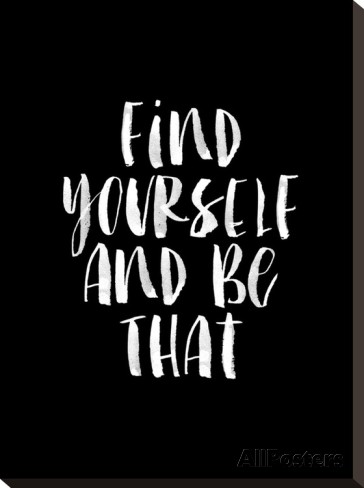
I started to read the book by Edward Deci, "Why we do what we do. Understanding self-motivation".
This is the first book, that I know, that defines self the way, or similarly the way I do...
To become a person, to have autonomy, self-determination, self-expression, integrity, self-motivation, the most important job is to find the self, by distinguishing what is the driver of all your actions, whether it is inner or outer.
And if it is inner... is it the self, or is it the "not-self"?
Greed, narcissism, hate... area inner motivators, but they are all the not-self. So are all the "negative" emotions, like frustration, haste, the desire to fix, to punish, to suffer... etc.
Your language would indicate that all that comes from within is the self, but your actions don"t indicate the same. You call all that is within "me" or "myself", but your language is sloppy: you lack distinction and differentiation.
As long as there is a discrepancy between your actions and your words, the driver isn"t the self, it is the "not-self"... ego, cultural conditioning, mind, genes... but not the self.
At this point only half percent of humanity has a sense of self, one out of 200.
These rare people are busy doing what the self wants them to do... so none of my students are part of the half percent.
Just like Cinderella needed to separate the wheat from the chaff, you need to do that too.
What you are left with is the Self.
Here is a little insight how one writer has decyphered and separated self from not-self:
You know what else is a mystery? My daughter. When she was born, she was a cipher. An unreadable blob of so-soft-it’s-almost-edible flesh. When she was about four months old, though, she became a very effective communicator. When she was hungry, she’d shriek like a banshee. When she was tired, she also shrieked. When she was bored or physically uncomfortable, she shrieked. She wasn’t crying. She was shrieking, and it was louder, more high-pitched and more sudden than any other sound I’d ever heard a human make. It was painful to the ears and the heartstrings, which made it a remarkably effective form of communication.
She shrieked to tell us just four things – fatigue, hunger, discomfort, boredom. So I was left wondering a great deal about her inner life. When I hold her in front of a mirror, what does she think? When she is gazing into space, how is she processing all that she has been exposed to? And when she shrieks particularly loudly, is she more upset? Or is she just experimenting with varying her mode of communication?
I don’t think I’ll ever know the answers to these questions. But, luckily, her psyche will become more and more transparent as each month goes by, because in each month she will become more and more interested in books. Our selection of books, from earliest childhood through to the ends of our lives, provides a window into our secret souls. And children, who (necessarily, for survival purposes) are mos
CLICK TO CONTINUE
No comments:
Post a Comment